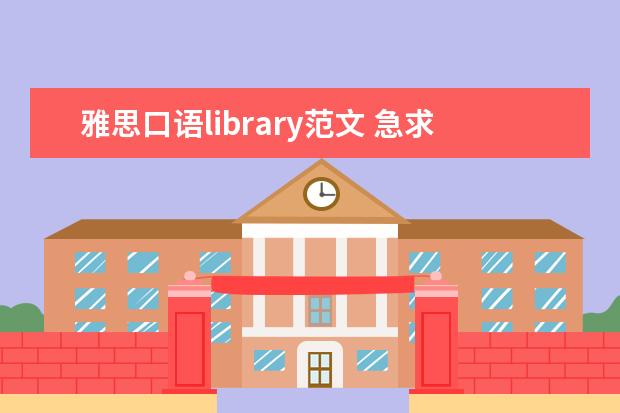当前城市:淄博[切换]
- 手机雅思无忧

扫码登录
雅思考试主要是通过对考生听、说、读、写四个方面英语能力的考核,综合测评考生的英语沟通运用能力,实现“沟通为本”的考试理念。对于雅思考生来说,也有很多考试难点和政策盲区需要帮助解答。今天雅思无忧网小编准备了雅思口语part范文media 急求雅思口语a piece of interesting news/a story ...,希望通过文章来解决雅思考生这方面的疑难问题,敬请关注。
为了帮助大家备考雅思,提高雅思写作水平,下面我给大家带来雅思写作:如何分清正式与非正式英语,希望对大家有所帮助!
雅思写作:如何分清正式与非正式英语
一、正式英语
正式英语主要应用于写作中。这种文体格式通常带有学术性的写作口吻,通常见于学术课本,大学论文,商业信函和合同中。
在口语表达方面,正式英语通常只用于官方或正式场合,例如,在大学 毕业 典礼上正式欢迎来宾。
正式英语比日常用语使用更多的复杂词汇。例如,正式用语常常比日常对话使用“更庞大”的词汇。如以下几个多音节词compensate, ascend 和 interrogate。 正式用语还常常使用单个动词(如establish)来代替简单的 短语 动词(如set up)。此外,在正式用语中还要嫌氏尽量避免 俚语 和口语的出现。
当正式用语应用于写作中时, 句子 通常较长,较为复杂,也应严格遵循语法规则。正式写作中,通常较为客观,经常使用it这样的非人称代词和动词的被动形式。应该尽量避芹好散免缩略语和缩写单词的出现。
二、非正式英语和流行英语
非正式英语是大多数人们日常所说的英语。非正式英语广泛应用于电子邮件和朋友书信中。
使用非正式英语的人们对词汇的选择不太在意,如:非正式英语使用很多较短的单词(如fire, climb和 ask),使用许多口语词汇(如stuff, a lot of, thing和 sort of),还很使用一些短语动词(如使用set up ,而不用establish)。非正式英语在语法上没有正式英语要求严格,常使用简单的语法结构和比较松散的句子或短语。
在写作中,非正式英语比正式英语常常使用更加个人化的文体,常用第一,第二人称(例如I ,you, we)。缩写单词(如常常使用it's,而不是 it is)也常常见于非正式英语之中。而且,非正式英语比正式的写作句式通常更短。在正式 英语写作 中,常常使用较为正式的标点符号---而避免分号(;)和冒 号(:)的出现,非正式英语则可以出现。 流行英语很少应用于写作中,大多是用于口语之中。非正式英语中包括大量的俚语。俚语就是一些非正式的,在礼节性的演讲和正式场合常常被看作不合适的单词或短语表达。俚语常常由固定的社会团体或职袜败业人群使用。
三、关于短语动词
人们使用非正式英语谈话或写作时,经常使用短语动词(也叫做多个单词或多部分动词)。以下是几组例子。括号中是其对应的正式用语。 短语动词和其对应的单个动词
要求ask for (request)订约go down with (contract)
建立set up (establish)处理deal with (handle) 发现find out (discover)欺骗take in (deceive)
短语动词在口语中较为常见。然而,比起其对应的单个动词不太正式。
在正式写作中,作者常常更倾向于使用单个动词,例如 examine和devise,而不使用短语动词,如look at 和come up with。请对比下页表格中的每对动词。 虽然在正式英语中,倾向于使用较短的短语动词,但是如果真的使用了这些短于动词句子也不为错误。然而,如果有比短语动词更为简短的单个动词,最好使用单个动词。
不要认为在雅思写作考试中使用多个短语动词会使 文章 不太正式。实际上,在许多情景之中---甚至是在非常正式的文体中---短语动词依然是确切表达文章主旨的方式。例如,put on 比起其更加正式的用语don来说,更加自然贴切。
四、非正式用语较正式用语
他调查了(checked up on)他的会计。他调查了(investigated)他的会计。
他们容忍了( put up with)邻居们。他们容忍了( tolerated)邻居们。
她很快就理解了(caught on)。她很快就理解了(understood )。
为了弥补(made up for)它,她早早的睡了。为了弥补(compensated)它,她早早的睡了。
他发烧了( went down with)。他发烧了 (contracted )。
生活费上升了(went up)。生活费上升了(contracted)。
五、辨别不同
通常很容易的决定一个词是正式用语还是非正式用语。非正式用语就是人们每天使用的那些共同的,普通和熟悉的词,而正式用语则是更加“严肃”和较少常用的单词。 通常,正式词比非正式用语较长。单个动词比它们所对应的短语动词也较为正式。
例如,称某件东西是极大的enormous是正式的,但是要说whopping是不非正式的。象一方面on the one hand 或如上所示 as indicated above,这样的词组是正式的,但是,如顺便说一句by the way 或那提醒我that reminds me就是非正式的。
请注意:一些非正式单词比其他一些非正式的单词更为正式。例如,非正式用语understand,比非正式用语get更为正式。然而,二者均不如正式用语comprehend更加正式。
六、雅思考试使用半正式文体格式
学术文章可以使用“中间的或稍正式的文体格式”。这就意味您雅思学术文章写作中可以使用稍加正式的词汇 (例如 ,可以使用spark off 而不用 cause 这样的短语动词),还可以使用更加正式的用语。可以使用正式英语中常常使用的复杂语法,也可以使用更加简单的语法结构。
但是,越使用正式词汇和更复杂的语法结构,雅思的考试得分就会越高。,例如,在词汇方面,评分标准之一就是---当使用“不太普通”或“不普通”的 词汇,也就是使用较正式的词汇时,考生就会得到较高的分数。考生可以登录一下网址 /4uddk 来查看详细的评分标准。
这是我对参加雅思学术写作考试的考生在使用词汇方面的几点建议:
如果使用一个更加正式的单个动词,比其相对应的短语动词听起来更加贴切自然,最好使用正式的单个单词。
避免使用个人化的或会话样式的文体格式(听起来好像正同考官聊天)。因此,尽量不要使用词,如I, me, my, you, we, us 和 our这样的单词。虽然这些单词广泛应用于非正式用语和口语中,通常认为在正式的学术性写作中,这些单词太过个人化,太过随意。
如果考生愿意,考生可以使用代词I来发表自己的看法。但是,在开篇和文章结尾使,尽量避免I的出现。这样,考生就可以避免使自己的文章太过个人化,具有太多的会话风格。
雅思写作真题:charity organization
Some people believe that charity organizations should give the aid to those who are in great needs, some people think that charity organizations should concentrate on helping people who live in their own country. Discuss both views and give your opinion. (抽象类)
Introduction
Background – theme – view
Charity organization
什么是慈善组织,它的目的是什么,它的作用是什么,什么时候会出现对于慈善组织的讨论?
When people suffer some natural disasters and are confronted with difficulties, they may expect the aid from others, especially charity organizations. However, there is an opinion that charity organizations should help people of their own country instead of giving aid to whoever in need. From my perspective, the aid should be given to those in need regardless of their nationality.
Natural disasters, war or social turmoil, all these factors may render people fall into poverty and diseases. The rise of charity organizations is associated with the emergence of these disasters. They relieve people from great sufferings and give people in need hope of survival. However, there is an opinion that aid from charities should only be given to people living in their countries while others think that charity should benefit all people. I tend to believe the latter is of more justification.
Body 1: why we should give help to those in great needs? What is the responsibility of charity organizations?
To help those in great needs is a reflection of moral obligation/duty for human beings.(意义) And this practice of helping others will have numerous/many positive effects involving/including promoting economic development and enhancing social harmony. (影响和作用)Meanwhile, the aid from charity organizations may cover a wide range of people and may be more transparent. However, there are some disadvantages of charity organizations. The money donated by charity organizations may be taken away by local officials and cannot reach those who are really in need. What’s more, charity organizations tend to give aid to those areas which are frequently reported by the media. This will cause regional imbalance or even regional conflict.
Body 2: whether aid from charities should only be given to local people?
As for those who advocate that aid for charity organization should be given to people living in their own country, I hold conservative attitude. There is no denying that it is more effective for charity organizations to give aid to local people. However, how to
ensure fairness/equality among different peoples is the priority for charities. Fair distribution of resources and aid is an objective reflection of human virtues. (反证)If every individual or every organization just focus on their own interest, the world will become indifferent and unfriendly.
In conclusion, charity organization should give aid to people who are in great need without considering their social background, their nationality and something irrelevant. However, the aid should be supervised and monitored by some independent organizations for fear of corruption or embezzlement. / However, the aid should be controlled or supervised by some dependent organizations so that it can reach the targeted people.
雅思写作:Environmental Protection
Environmental hazards are often too great for particular countries or individuals to tackle. We have arrived at a point in time where the only way to lessen environmental problems is at an international level.
Environmental problems have reached such proportions that people feel international organizations must be set up to intervene in world affairs to resolve these problems. Whether this will resolve the problem is very unlikely as international organizations are just an extension of human behavior. That is, if human conflicts cannot be resolved at home, then they are unlikely to be resolved at the international level. Nevertheless, international organizations do attract attention to the growing problem of aims of the international community to resolve the issue of environmental pollution and support their cause, I do not believe it is the best or only way to protect the environment; in fact, it is only a *all part of what is needed in a global initiative.
All world problems, whether it is environmental pollution, war, energy insufficiency, or famine, arise from the abusive behavior of all individuals. Therefore, the solution to all these problems is the need for a collective consciousness. What is meant by this is that each individual must be aware of the impact he or she has on the world and their unique part to play in this world. After all, if one is happy with his life, he will surely not endeavor to harm the environment or anyone else. His behavior will be that of a responsible individual.
What is needed, therefore, is education. Education is the key to all problems and it starts from pregnancy all the way to *hood and beyond. Furthermore, education means that children all over the world should be allowed to go to schools with good teachers and where teaching materials and methods can be adapted to each individual. Education means raising children to be responsible individuals.
This may sound like utopia, but it is not: if a country had important problems in its educational system, then it should realize that it is contributing to the world’s problems. These are perhaps long term solutions, but they are more realistic solutions than setting up yet another international organization.
雅思写作 范文 Touri*
Pros and Cons of Touri*
Pros:
1. It is regarded as a pillar of key local economic development.
2. The booming tourist industry has created more job openings. Many people have said good-bye to poverty through involvement in tourist businesses.
3. The tourist industry has played a positive role in meeting the cultural needs of the public, carrying forward national culture and achieving the sustainable development of resources.
4. Touri* helps to better introduce the country to foreigners and showcase the brilliant history and culture to the outside world.
5. Touri* helps to improve the investment environment so as to attract more foreign investors.
6. Tourists can take pleasure in the magnificent natural landscape, appreciate the superior workmanship of ancient artists and enjoy a variety of local delicacies (specialties). Many tourist attractions offer a wealth of historical relics, fascinating scenery and interesting local culture.
7. Touri* helps to promote the catering trade, transportation service and commerce.
8. Touri* is the world’s largest and faster growing industry. According to recent statistics, touri* provides 10 percent of the world’s income and employs almost one-tenth of world’s workforce. By the year 2021, these numbers will double. All considered, touri*’s actual and potential economic impact is astounding.
9. Touri* encourages the preservation of identify, pride and value in our living conditions and the cultural legacy of generations in danger of extinction.
10. Touri* contributes to the revival of customs and traditions.
11. Touri* brings new money into an area and generates jobs, income and tax revenues.
Cons:
1. Contact with and assimilation of other cultures will reduce the uniqueness of one’s own culture and make the world less colorful than before.
2. Undermine local traditions and ways of life.
3. Touri* may cause serious environmental pollution.
以上就是雅思无忧网为您准备的访问雅思无忧网(https://www.yasi.cn/),了解更多雅思考试新消息,新动态。
雅思培训 雅思口语reading范文 急求雅思口语a piece of interesting news/a story ...
雅思口语reading范文 急求雅思口语a piece of interesting news/a story ...
雅思考试主要是通过对考生听、说、读、写四个方面英语能力的考核,综合测评考生的英语沟通运用能力,实现“
2023年07月17日 19:18 雅思口语library范文 急求雅思口语a piece of interesting news/a story ...
雅思口语library范文 急求雅思口语a piece of interesting news/a story ...
雅思考试主要是通过对考生听、说、读、写四个方面英语能力的考核,综合测评考生的英语沟通运用能力,实现“
2023年07月17日 22:55 雅思口语范文cooking 急求雅思口语a piece of interesting news/a story ...
雅思口语范文cooking 急求雅思口语a piece of interesting news/a story ...
雅思考试主要是通过对考生听、说、读、写四个方面英语能力的考核,综合测评考生的英语沟通运用能力,实现“
2023年07月18日 03:02 雅思口语gift范文 急求雅思口语a piece of interesting news/a story ...
雅思口语gift范文 急求雅思口语a piece of interesting news/a story ...
雅思考试主要是通过对考生听、说、读、写四个方面英语能力的考核,综合测评考生的英语沟通运用能力,实现“
2023年07月18日 08:11 movie雅思口语范文 急求雅思口语a piece of interesting news/a story ...
movie雅思口语范文 急求雅思口语a piece of interesting news/a story ...
雅思考试主要是通过对考生听、说、读、写四个方面英语能力的考核,综合测评考生的英语沟通运用能力,实现“
2023年07月18日 08:31 雅思口语sports话题范文 急求雅思口语a piece of interesting news/a story ...
雅思口语sports话题范文 急求雅思口语a piece of interesting news/a story ...
雅思考试主要是通过对考生听、说、读、写四个方面英语能力的考核,综合测评考生的英语沟通运用能力,实现“
2023年07月18日 09:59 雅思口语favorite book范文 急求雅思口语a piece of interesting news/a story ...
雅思口语favorite book范文 急求雅思口语a piece of interesting news/a story ...
雅思考试主要是通过对考生听、说、读、写四个方面英语能力的考核,综合测评考生的英语沟通运用能力,实现“
2023年07月18日 16:46 雅思口语Part3:有趣的新闻 Describe a piece of local news that was interesting to you
雅思口语Part3:有趣的新闻 Describe a piece of local news that was interesting to you
Describe a piece of local news that was interestin
2022年02月28日 04:22 雅思口语话题解析:Describe a news story
雅思口语话题解析:Describe a news story
雅思考试主要是通过对考生听、说、读、写四个方面英语能力的考核,综合测评考生的英语沟通运用能力,实现“
2022年12月30日 17:00 2020年9月雅思口语part2新题:Describe a piece of good news you received
2020年9月雅思口语part2新题:Describe a piece of good news you received
2020年9月雅思口语part2新题:描述一件你曾经忘记做的事 part 2话题
2021年09月24日 10:09